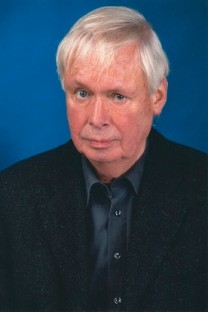Prof. Dr. Fritz Kramer was born in 1941 in Bad Salzuflen and grew up in a calvinist family. His father worked as a carpenter. At early age Kramer developed an interest in literature and philosophy. As a teenager he not only read as diverse authors as Platon and Eichendorff but also anthropological works, e.g. by James Frazer.
After finishing school Kramer began his studies of German Language and Literature in Mainz. Due to his growing interest in cultural topics he also took courses in Anthropology and Sociology. Among his teachers was not only Erika Sulzmann but also Karl Nowotny, whose critical approach had a strong impact on Kramer.
Kramer eventually moved to Heidelberg and studied Anthropology and Sociology. W.E. Mühlmann, Ernst Topitsch, Lorenz Löffler, E.W. Müller and Ferdinand Hermann were among his teachers as well as Norbert Fügen. Kramer also intensely attended lectures in Philosophy, e.g. by Heidegger, Habermas, Gadamer and Löwith. Moreover he actively took part in the 68 student-movement.
In 1969 Kramer completed his graduation thesis and held an assistant position in Heidelberg for the following two years. In 1971 he took up an junior position at the Institute for Social and Cultural Anthropology in Berlin, which three years later turned into an assistant professorship after his habilitation. He not only gave many academic lectures to an immensely growing number of students but also deepened and spread his knowledge about the british Social Anthropology.
Due to his interest in Cargo cults Kramer did a field research in New Guinea in 1974, followed by researches in the Sudan, on the Bikini Atoll, in India and Kenia. Moreover he had a growing interest in topics of Religious Studies and Art History. In the late seventies Kramer also began publishing books, e.g. with Christian Sigrist. Since 1979 he held a full professorship at the Institute in Berlin.
In 1983 Kramer moved to the south of Germany and worked as a publisher and free-lancing author in the following years. Since 1989 he holds a professorship at the University of Fine Arts in Hamburg (Hochschule für bildende Künste, HfBK), where he is giving academic letters on a broad range of topics.
Short Portrait: Fritz Kramer

Fritz Kramer
 further information
further information

